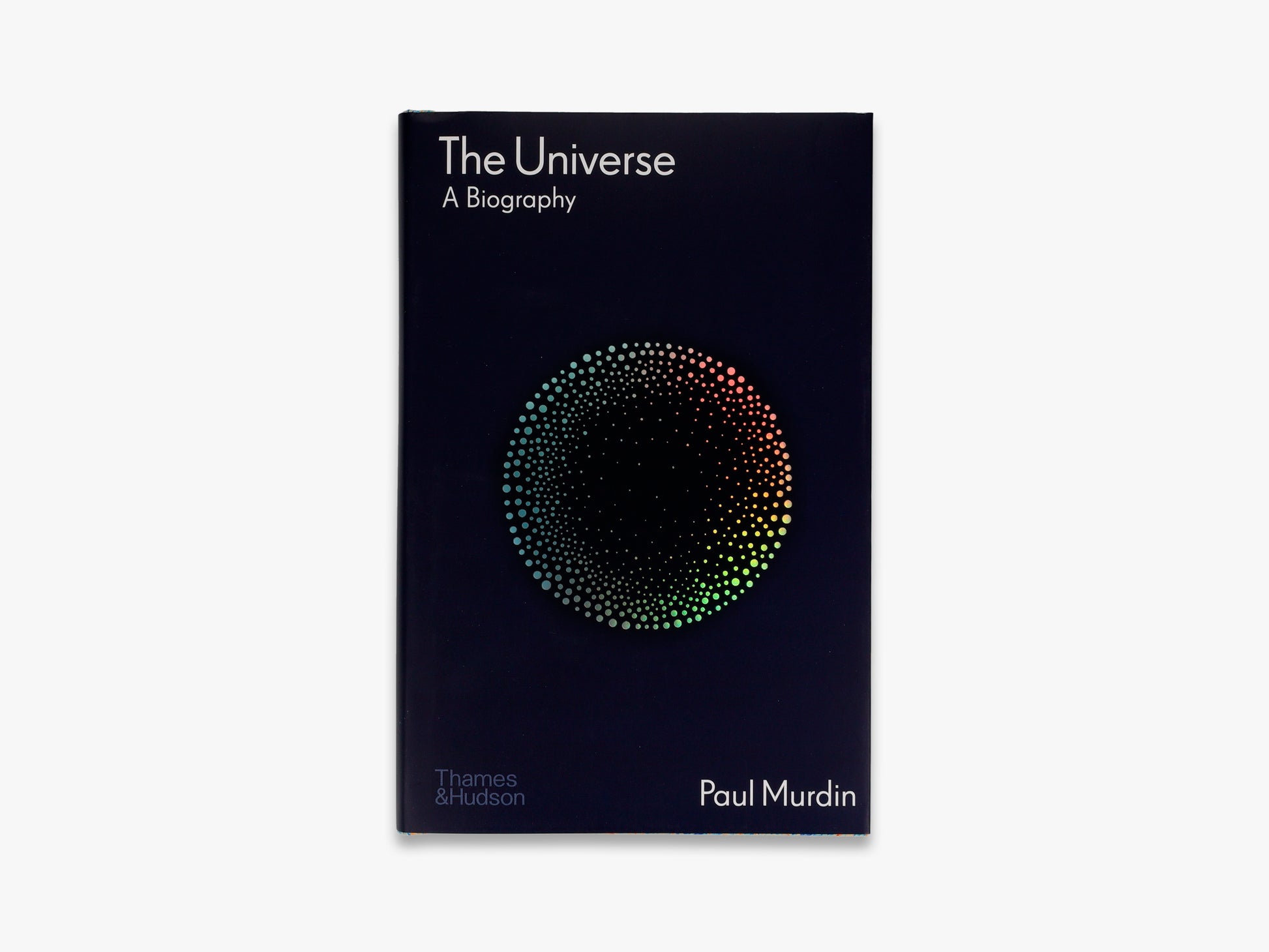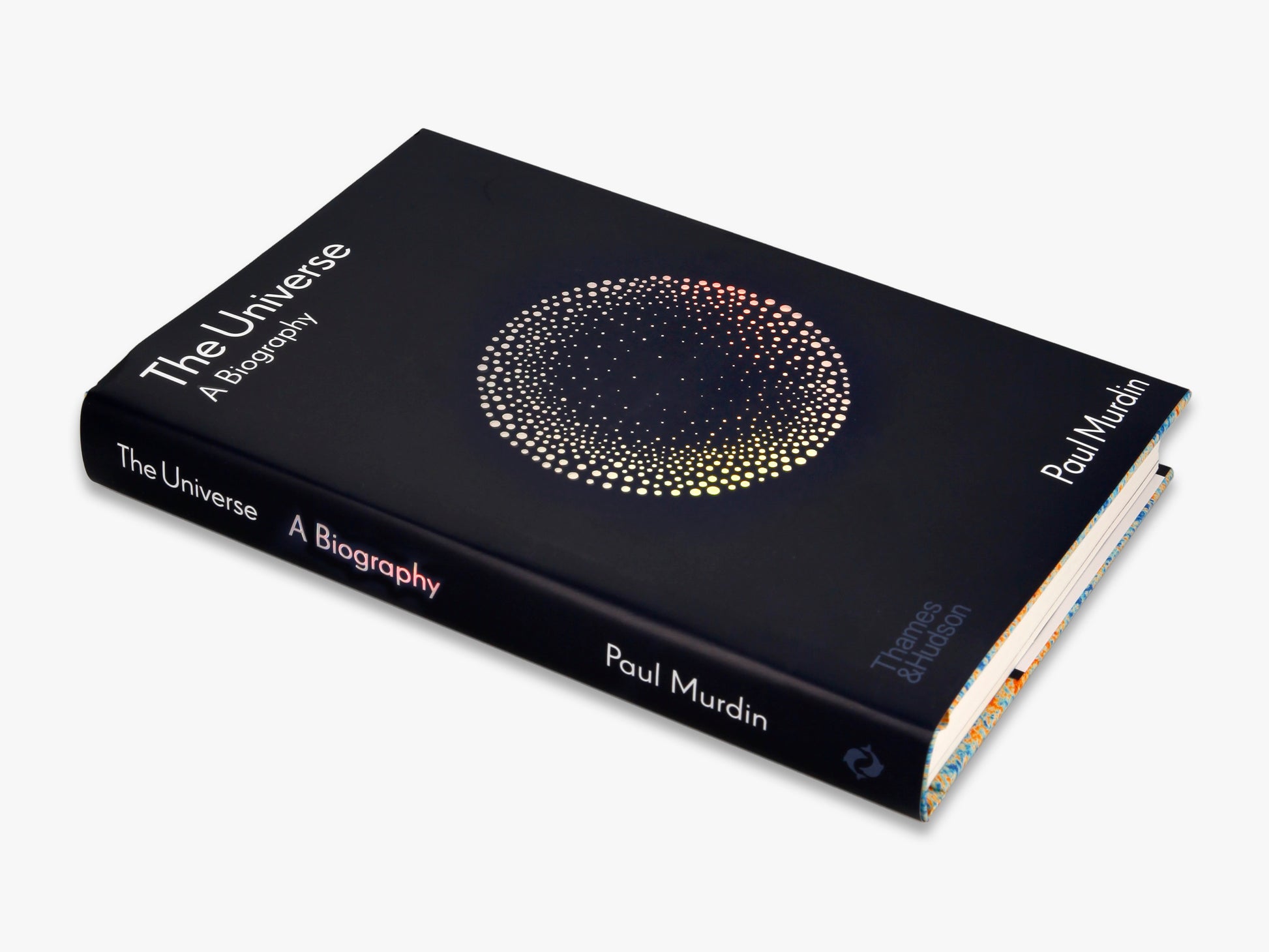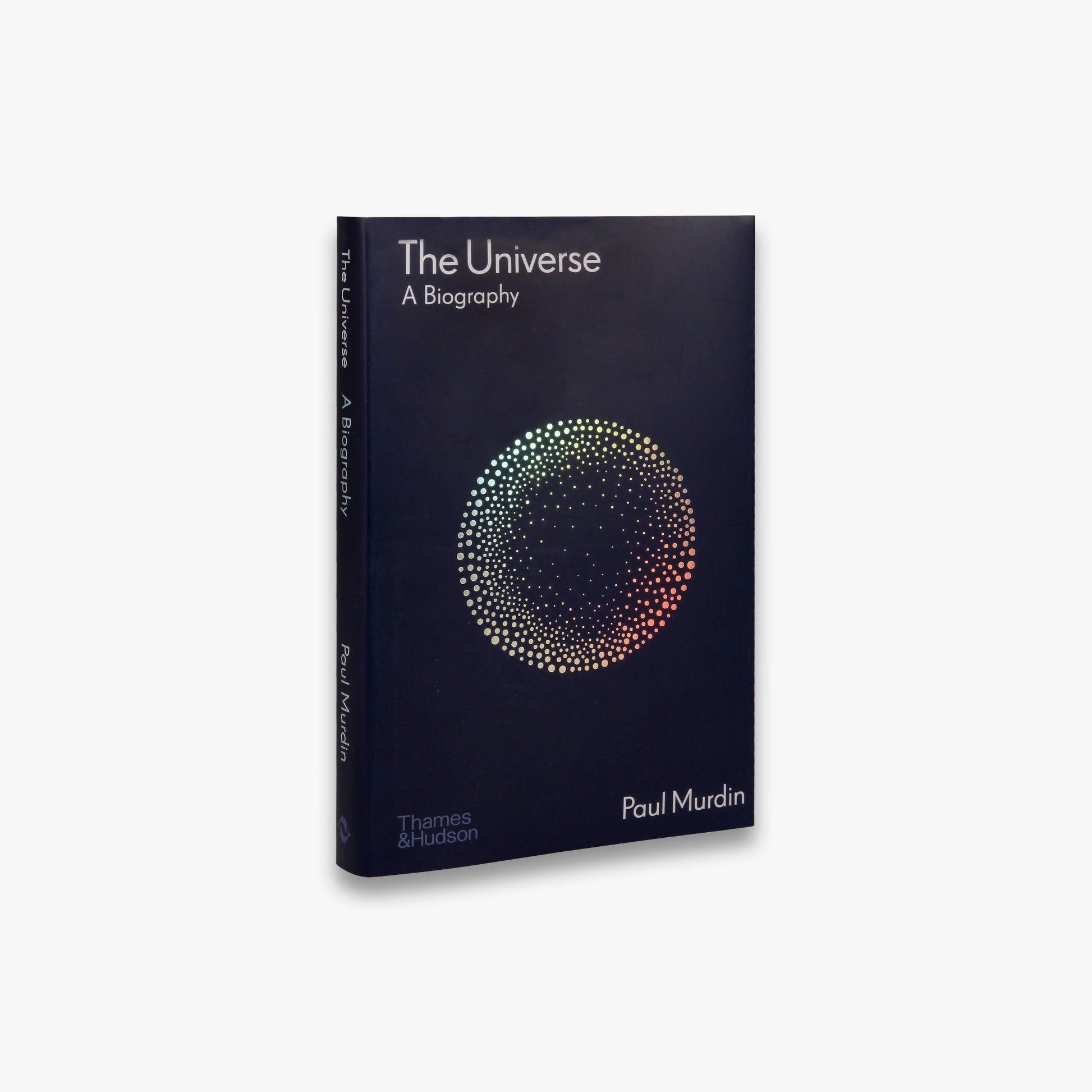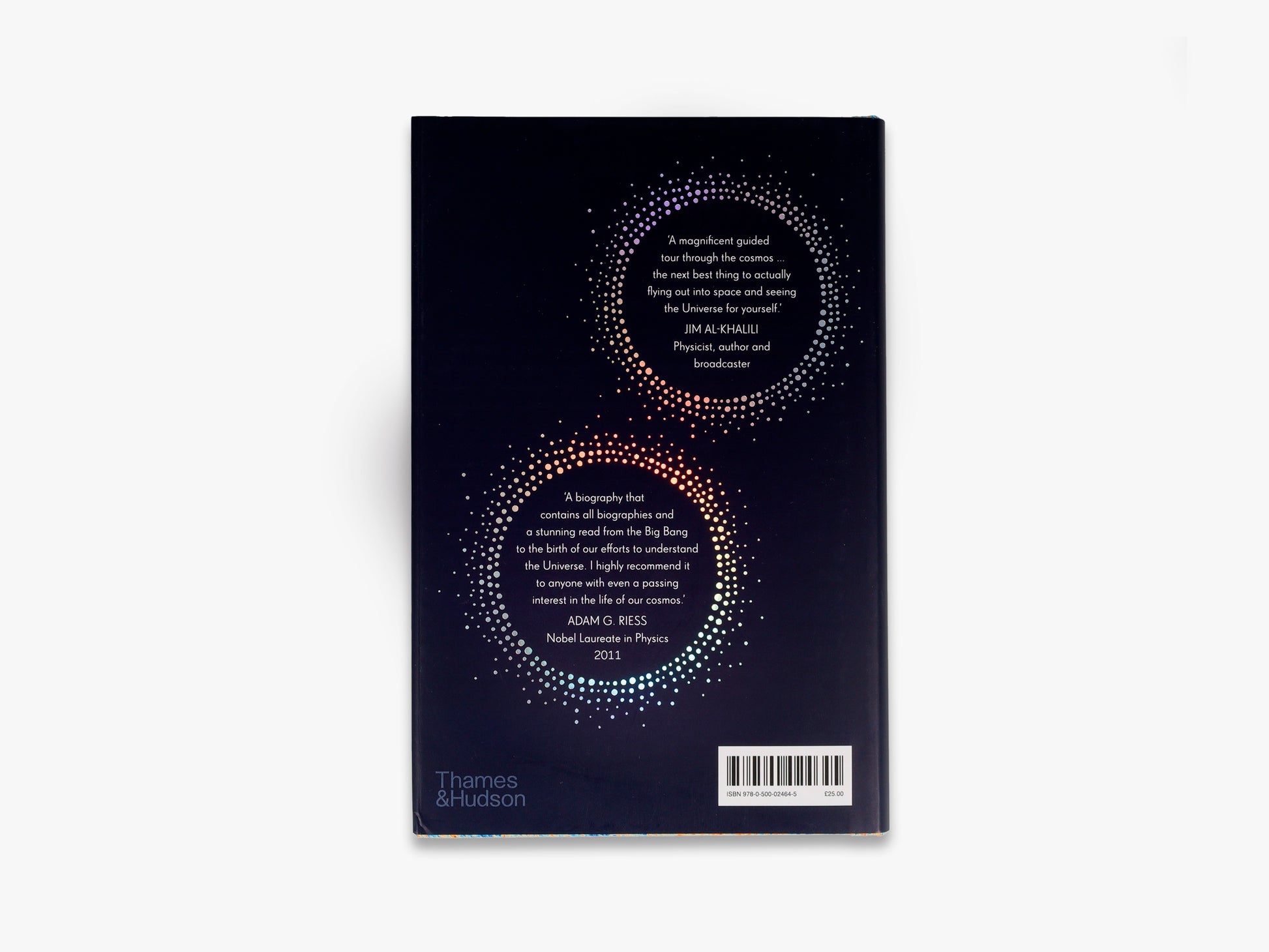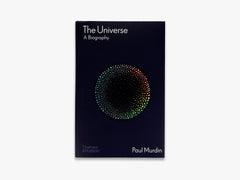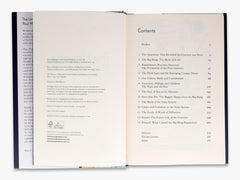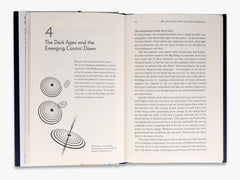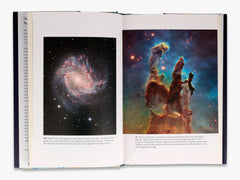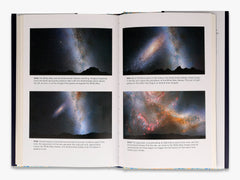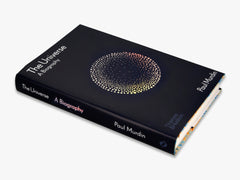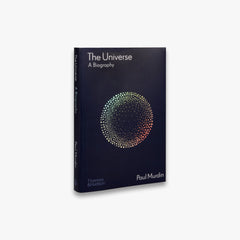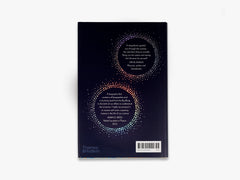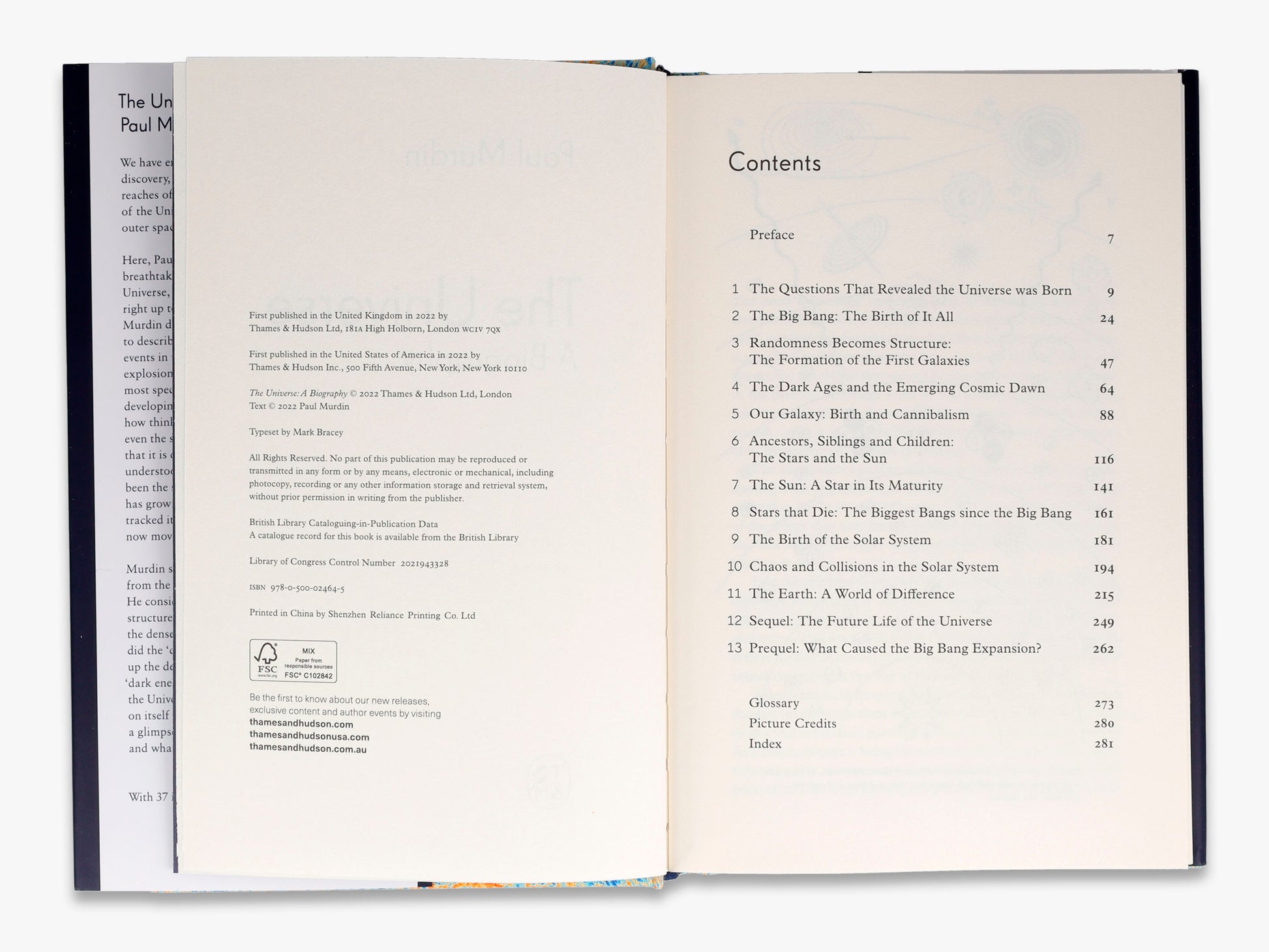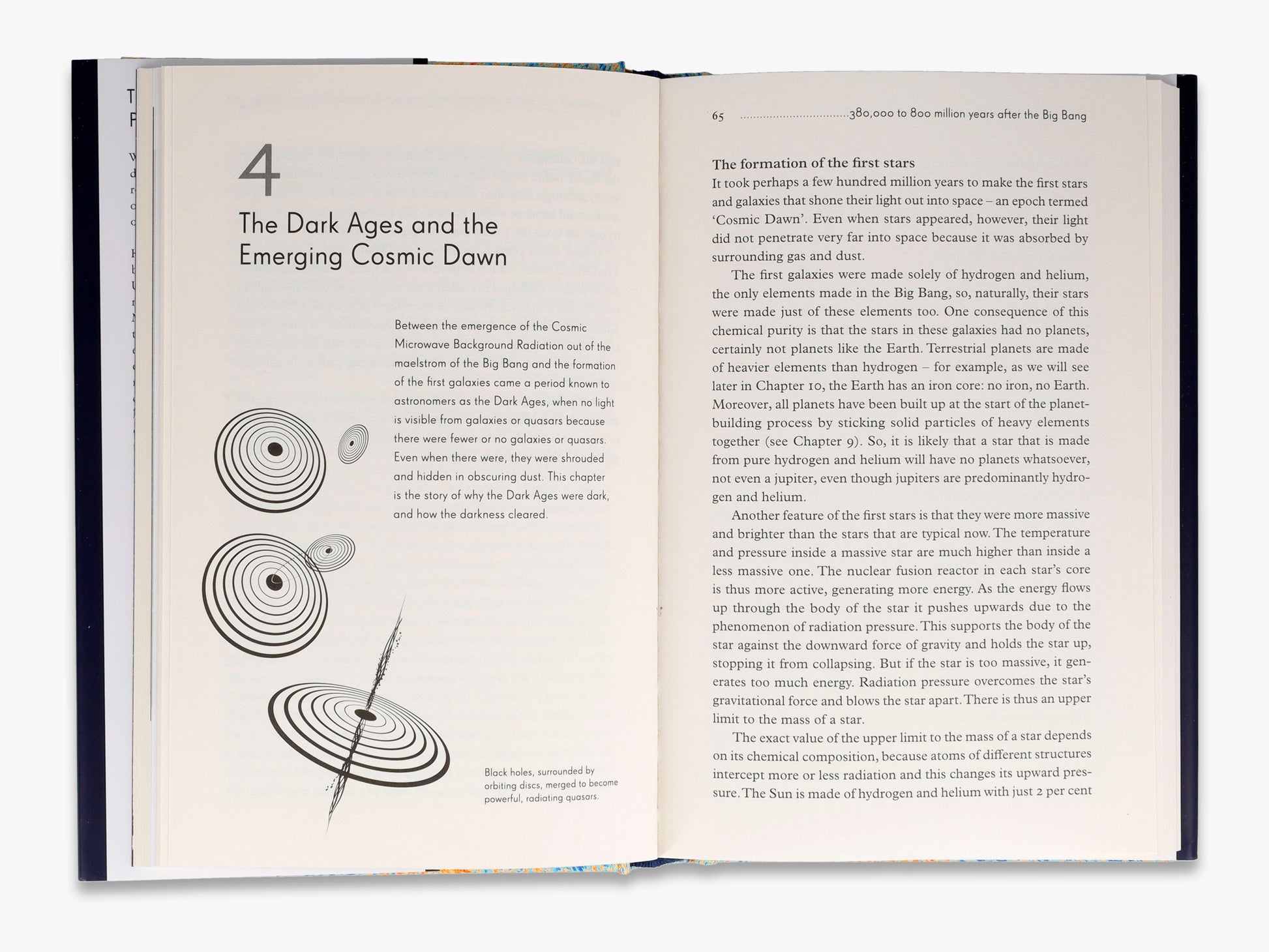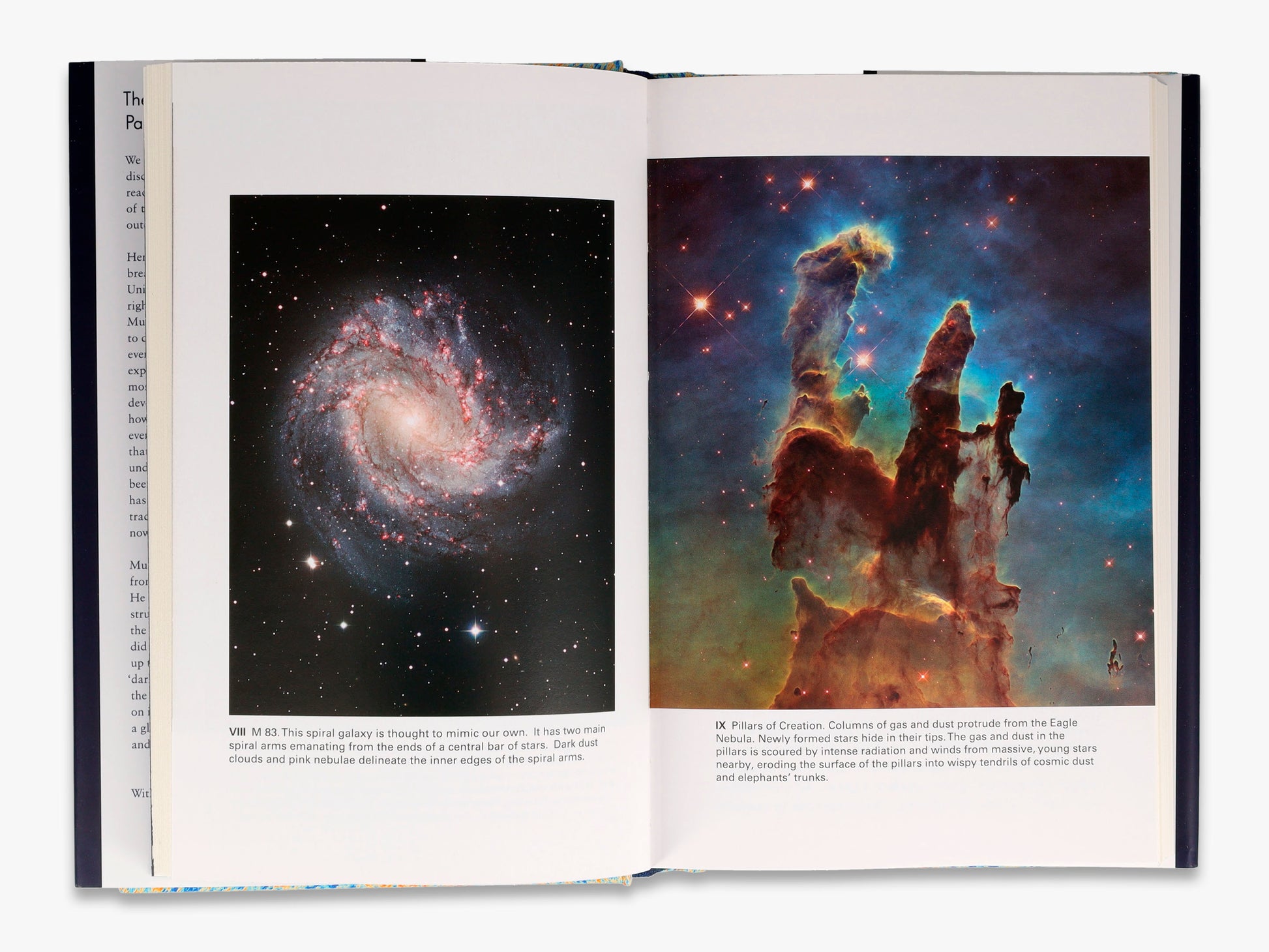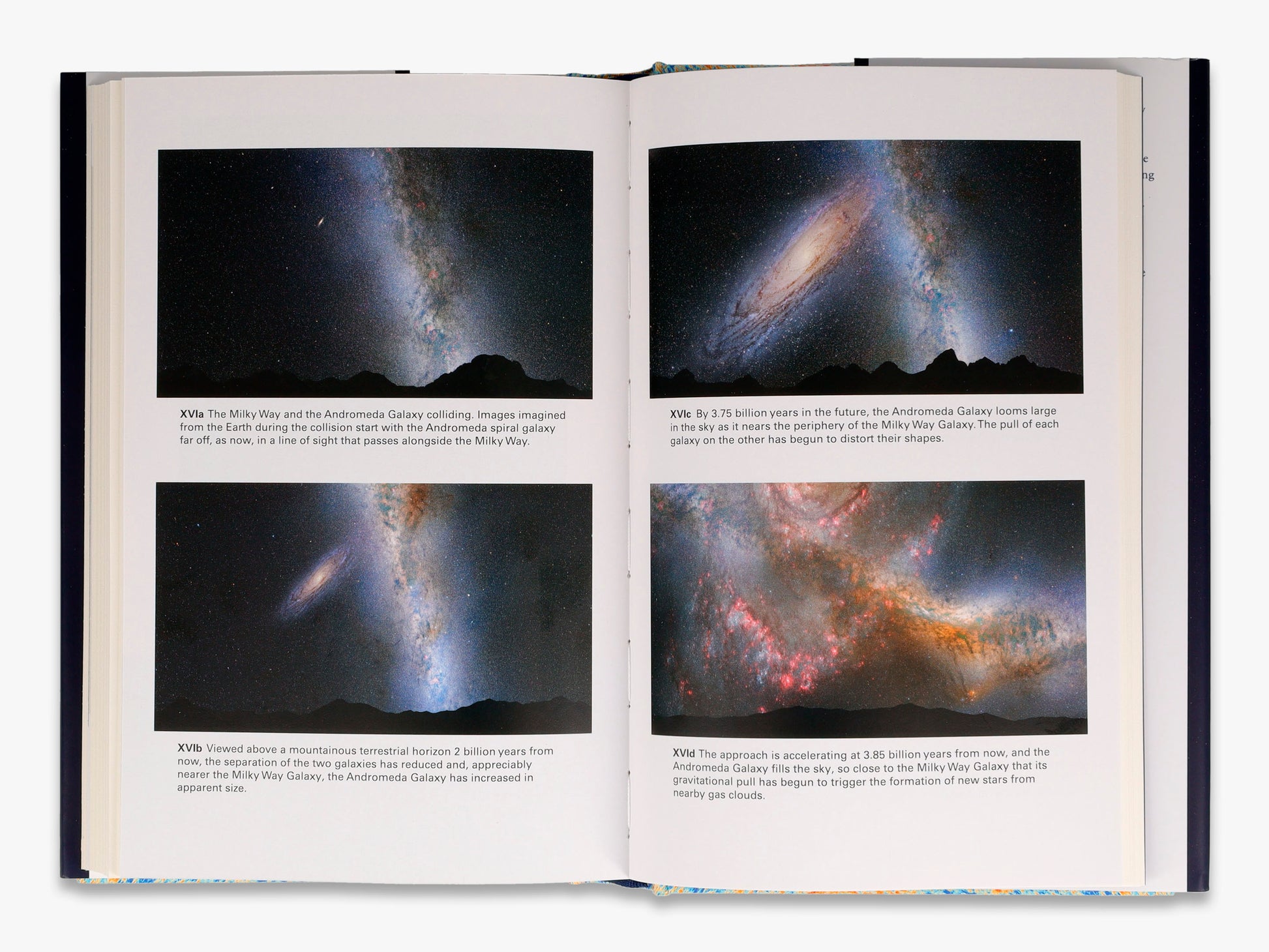Paul Murdin takes us on an original and breathtaking journey across the lifetime of the Universe, from the first milliseconds of the Big Bang right up to our present moment and even beyond. Murdin draws on the latest discoveries in astronomy to describe the most important characters and events in the life of our Universe: the most powerful explosions, the most curious planets, and the most spectacular celestial bodies. He charts our developing understanding of the cosmos, showing how thinkers have deduced profound truths from even the simplest observations – everyone can see that it is dark at night, but only recently have we understood this as proof that the Universe has not been the same forever. Since then, the Universe has grown up from childhood: astronomers have tracked it as it passed through maturity and as it now moves into middle age.
Murdin shows how our own lives were seeded from the Big Bang, galaxies, stars and planets. He considers some of the key questions: how did structures like galaxies and ourselves emerge from the dense maelstrom of the Universe’s birth? How did the ‘dark matter’ that we can’t even see speed up the development of galaxies, and how does ‘dark energy’ work to speed up the expansion of the Universe? Why hasn’t the Universe collapsed in on itself – and will it one day? And finally, he offers a glimpse into the future old age of our Universe, and what it means for us all.
1. The Questions that Revealed the Universe was Born
2. The Big Bang: The Birth of It All
3. Randomness Becomes Structure: The Formation of the First Galaxies
4. The Dark Ages and the Emerging Cosmic Dawn
5. Our Galaxy: Birth and Cannibalism
6. Ancestors, Siblings and Children: The Stars and the Sun
7. The Sun: A Star in Its Maturity
8. Stars that Die: The Biggest Bangs since the Big Bang
9. The Birth of the Solar System
10. Chaos and Collisions in the Solar System
11. The Earth: A World of Difference
12. Sequel: The Future Life of the Universe
13. Prequel: What Caused the Big Bang Expansion?
Press Reviews
Adam G. Riess, Nobel Laureate in Physics 2011
Jim Al-Khalili
BBC Sky at Night
Publishers Weekly
Paul Murdin is Senior Fellow at the University of Cambridge’s Institute of Astronomy and a member of Wolfson College. From 1963 he was a research scientist studying supernovae, black holes and neutron stars. He is identified as the co-discoverer of the first stellar black hole found in our Galaxy, Cygnus X-1. From 1981 he worked to organize observatories in the Canary Islands, England and Scotland, becoming a science policy maker for the UK government. In 1988 he was awarded an OBE and in 2011 he received the Royal Astronomical Society’s Award for Services to Astronomy. In a parallel career he has been, and remains, a broadcaster and commentator about astronomy
for the BBC and other media outlets. He is the author of many books, including Secrets of the Universe and The Secret Lives of Planets.
You May Also Like
View more- Choosing a selection results in a full page refresh.


